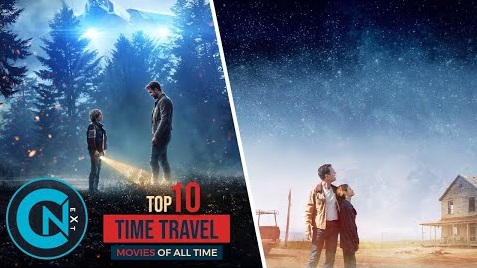Time travel has long been a captivating concept, weaving its intricate threads through the tapestry of human imagination. It’s a theme that has fascinated philosophers, scientists, and artists for centuries. In the realm of cinema, this fascination finds expression in a genre that never fails to intrigue and enthrall audiences: time travel movies. From classic masterpieces to contemporary blockbusters, these films have explored the complexities of time, space, and human nature in ways that challenge our understanding of reality. This essay embarks on a cinematic journey through time travel movies, delving into their narratives, themes, and the enduring impact they have on our perception of time.
The Birth of Time Travel Cinema:
The concept of time travel in cinema traces its roots back to the early days of film. However, it was H.G. Wells’ novella, “The Time Machine,” published in 1895, that laid the foundation for time travel as a literary and cinematic theme. In 1960, George Pal’s adaptation of Wells’ novella brought time travel to the silver screen, introducing audiences to the enchanting possibilities and perils of traversing time.
Exploring the Paradoxes:
Time travel movies often grapple with intricate paradoxes, where actions in the past can drastically alter the future. Films like “Back to the Future” (1985) and its sequels masterfully navigate these paradoxes, blending humor, adventure, and heartwarming moments. These movies have become timeless classics, illustrating how seemingly insignificant actions in the past can have profound consequences in the future.
Time Travel as a Tool for Social Commentary:
Beyond the thrill of temporal escapades, time travel movies serve as potent vehicles for social commentary. Terry Gilliam’s “12 Monkeys” (1995) explores themes of environmental decay and societal collapse, depicting a dystopian future plagued by a deadly virus. Similarly, “Looper” (2012) delves into the ethical implications of time travel, questioning the morality of altering the past to shape a better future. These films compel viewers to ponder the ethical dilemmas associated with manipulating time, prompting introspection about the choices we make in the present.
Time Travel and Identity:
Time travel movies frequently delve into the concept of identity, blurring the lines between past, present, and future selves. In “Primer” (2004), director Shane Carruth crafts a mind-bending narrative where characters grapple with their multiple selves across different timelines. The film challenges viewers to unravel its intricate plot, mirroring the characters’ struggle to comprehend their own existence amidst the complexities of time travel.
Inspiring the Imagination:
Time travel movies have not only entertained but also inspired generations of thinkers, writers, and scientists. The scientific community, captivated by the possibilities of time travel, often engages with these movies to explore the theoretical underpinnings of temporal manipulation. Concepts like wormholes, time dilation, and parallel universes, frequently depicted in these films, have become subjects of fascination and study among physicists and cosmologists.
Conclusion:
“Chronicles of Time: A Cinematic Journey Through Time Travel Movies” is a testament to the enduring allure of time travel in cinema. These films continue to captivate audiences, offering a mesmerizing blend of science fiction, philosophy, and storytelling. Through their narratives, they challenge our understanding of time, posing profound questions about fate, free will, and the consequences of our actions. As we journey through these cinematic masterpieces, we not only embark on thrilling adventures but also embark on a profound exploration of the human condition, leaving us with a sense of wonder and a renewed appreciation for the boundless possibilities of the universe. Time travel movies, in their essence, remind us that, just like the characters on screen, we too are voyagers in the vast and mysterious river of time, shaped by our choices, experiences, and the stories we tell.
